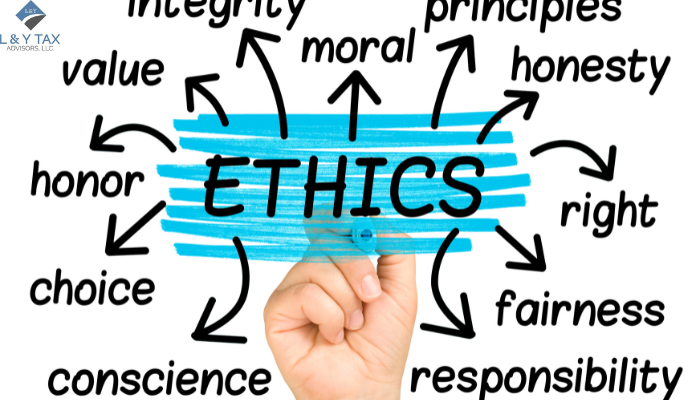
What are Business Ethics?
Comprehending what are business ethics introduces you to the moral standards, guidelines, and ideals that direct businesses and individuals in their operations.
Establishing a code of conduct that impacts employee behavior at all levels and promotes trust between a company and its clients goes beyond regulatory obligations. Ethical corporate procedures facilitate long-term success and further guarantee equity, openness, and honesty in operations.
What is Business Ethics?
Learning what are business ethics is essential to preserving customer and company trust. For instance, regardless of a client’s monetary conditions, a portfolio manager must treat all clients equally. Therefore, these ethical issues encourage fairness and honesty in the marketplace.
Historical Aspect of Business Ethics
Business ethics was born when businesses started addressing customer concerns about social and environmental issues in the 1960s. It has since changed to strike a balance between regulatory obligations and economic advantage, impacting how businesses function in an increasingly international market.
Get the best CFO & business advisory services.
What Are the 12 Ethical Principles?
Twelve core business ethics principles are as follows:
Leadership
Ethical leadership incorporates and upholds moral standards in both personal and professional choices.
Accountability
Companies need to be accountable for their deeds and moral pledges.
Integrity
The cornerstones of moral business conduct are honesty, dependability, and trustworthiness.
Respect for Others
Ethical behavior and equality are fostered in a respectful workplace.
Honesty
Communicating openly with stakeholders fosters trust.
Respect for Laws
Moral companies follow all applicable local, state, and federal laws.
Responsibility
Workers ought to be given the freedom to assume accountability for their work and moral behavior.
Transparency
Businesses must give accurate and lucid information about how they operate.
Compassion
Business connections are strengthened when staff, clients, and the community are treated with consideration.
Fairness
Everyone should be given ethical treatment and equal opportunity.
Loyalty
An excellent business culture is fostered by ethical leadership and dedication to employees.
Environmental Concern
Sustainable business practices guarantee long-term prosperity and environmental responsibility.
Why are Business Ethics Important?
Modern corporate success is heavily reliant on business ethics. A strong ethical basis results in:
- Improved reputation of the brand
- Improved ability to negotiate
- Enhanced client loyalty and trust
- Increased satisfaction and retention of employees
- Bringing in business partners and investors
As corporate scandals have shown, businesses that disregard ethical norms risk financial losses, harm to their brand, and legal action.
Get the best tax consultancy services.
Types of Business Ethics
Several essential factors define business ethics:
Corporate Social Responsibility (CSR)
Companies must consider how their actions affect society, the environment, and stakeholders.
Transparency and Credibility
Honest financial and operational data reporting is a hallmark of ethical firms.
Technological Practices
Businesses need to safeguard customer data and use technology sensibly.
Fairness
Policies in the workplace should guarantee equality, diversity, and inclusion for all workers.
How to Implement Good Business Ethics?
It takes a methodical strategy to create an ethical corporate culture:
- Create an ethical code.
- Create programs for ethical training.
- Encourage moral judgment at all levels.
- Establish explicit protocols for reporting unethical activity.
- Remind staff members that reporting misconduct is respected and safe.
What Are Business Ethics and Examples?
Business ethics influence everyday business choices. For instance, a business that illegally dumps hazardous garbage may save money. However, doing so risks serious legal, environmental, and reputational repercussions.
The Bottom Line
Comprehending what are business ethics impacts customers, stakeholders, society, and working staff. Adopting moral behavior promotes a happy workplace. It increases customer confidence and helps businesses succeed in the long run. In addition to increasing profits, ethical companies add value over the long run for all parties.
Contact L&Y Tax Advisor for your personal and professional taxation and financial matters.


